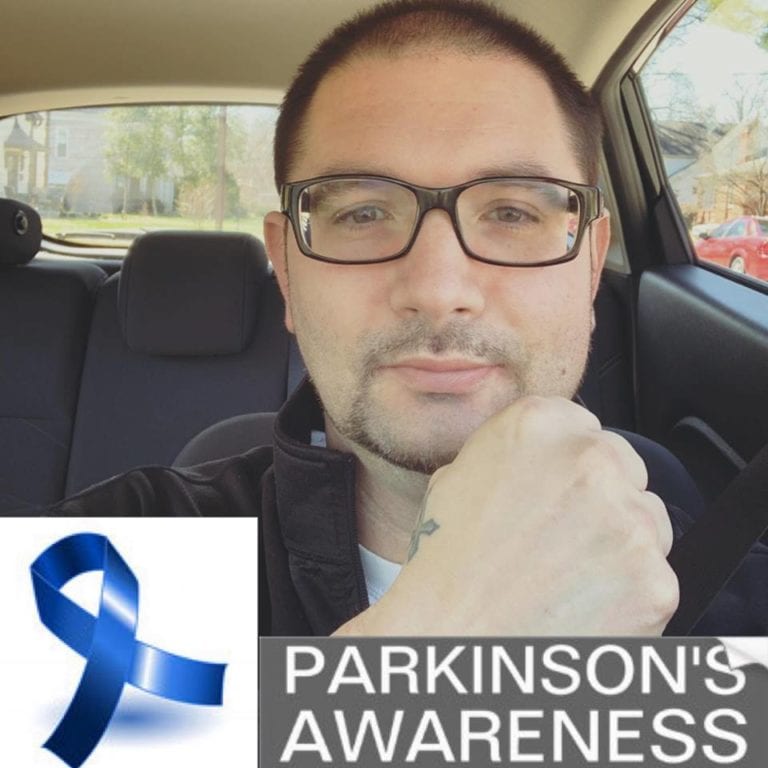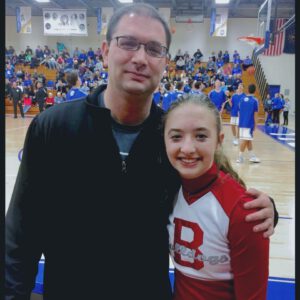
By Tony Garrett, 23andMe customer and research participant
What if something inside you, something in your DNA, could lead to a cure, would you share it? Would you share it even if it didn’t help you personally?
I’m a 40-year-old father of a teenage girl, and this question isn’t a rhetorical one for me. I’ve beenliving with Parkinson’s disease for a decade now. I want to know.
I have to tell you I’m biased. I would gladly share my information. I would die happy if I knew that knowledge gleaned from my DNA might have helped in the development of a treatment or cure. Even if it didn’t help me.
You Can Help
Something in you, in your DNA, when studied together with data from millions of others, could help me. Isn’t that a profound idea?
What is much more likely is that that information could help future generations facing a diagnosis like mine. That’s why five years ago I didn’t hesitate to opt into having researchers at 23andMe use my data. The company was upfront. They let me know they were working with researchers at The Michael J. Fox Foundation and also at pharmaceutical companies that may use my anonymous data for the study of Parkinson’s and other diseases, in the search for new treatments.
But I know that not everyone is so eager to be part of research like this. I understand that, and I’ve heard a lot from those who choose not to opt-in and all the reasons why. But I want to share with you what I see as the positive side of participating in research.
We live in a new world where data, big data from millions of people like you and me, could lead to new breakthroughs that save people’s lives. This new method of research is revolutionary. It has the potential of accelerating treatments and cures for conditions like Parkinson’s, and to do that much faster than before. For those of us with Parkinson’s that means something.
Living with PD
So what about me?
Many people know about Parkinson’s because of Michael J. Fox and Muhammad Ali, and the heroic work they’ve done to raise awareness about this condition. But, like me, most of the almost one million people living with Parkinson’s in the United States are not in the limelight. Our daily battles with this disease are largely unseen.
My life is simple.

Tony with his daughter Breanna.
I was born and raised in a working-class part of Illinois where I still live. I played high school sports — football, basketball, and track. When I graduated, I went to work. I did maintenance with the local school district, but in my early 20s I noticed my hand was giving me trouble, and my pinky would shake. My doctor sent me to see a neurologist, but at the clinic, they told me they’d need me there for two weeks of tests. I couldn’t take that kind of time off work. It would be several years before I was ultimately diagnosed, at 31, with young onset Parkinson’s disease.
By then I was having more than just grip problems. I had leg cramps, slurred speech, and some mornings it was so hard to move. It felt as if I was encased in concrete. My doctor said I was the youngest patient he’d ever seen with the disease. I guess that makes me special.
What I Want
I tell you this not so that you will feel sorry for me. I don’t want pity. I want you to understand what it is like to live with a condition like Parkinson’s. It’s a daily struggle. It involves both physical and psychological pain, wrangling for the right treatment, finding a medicine that doesn’t cause you even more problems, and fighting off depression. And as with any incurable condition, you must come to terms with where this is all going. Where it ends.
But I’m OK. My diagnosis brought me closer to my God. It has distilled what is essential in my life — my daughter, and my family. It helped me focus on the joy, and satisfaction I get in helping others. And I’ve learned to appreciate the simple joys of a walk outside and the morning sun. But I wouldn’t wish this disease on anyone. I will do whatever I can to help find a cure.
This gets me to you, and the question I asked in the beginning:
What would you do if information inside your DNA, could help cure Parkinson’s or any number of other conditions? Would you share it?
Tony Garrett is a retired maintenance worker who now works to raise awareness about Parkinson’s disease. He lives in Evanston, Illinois.